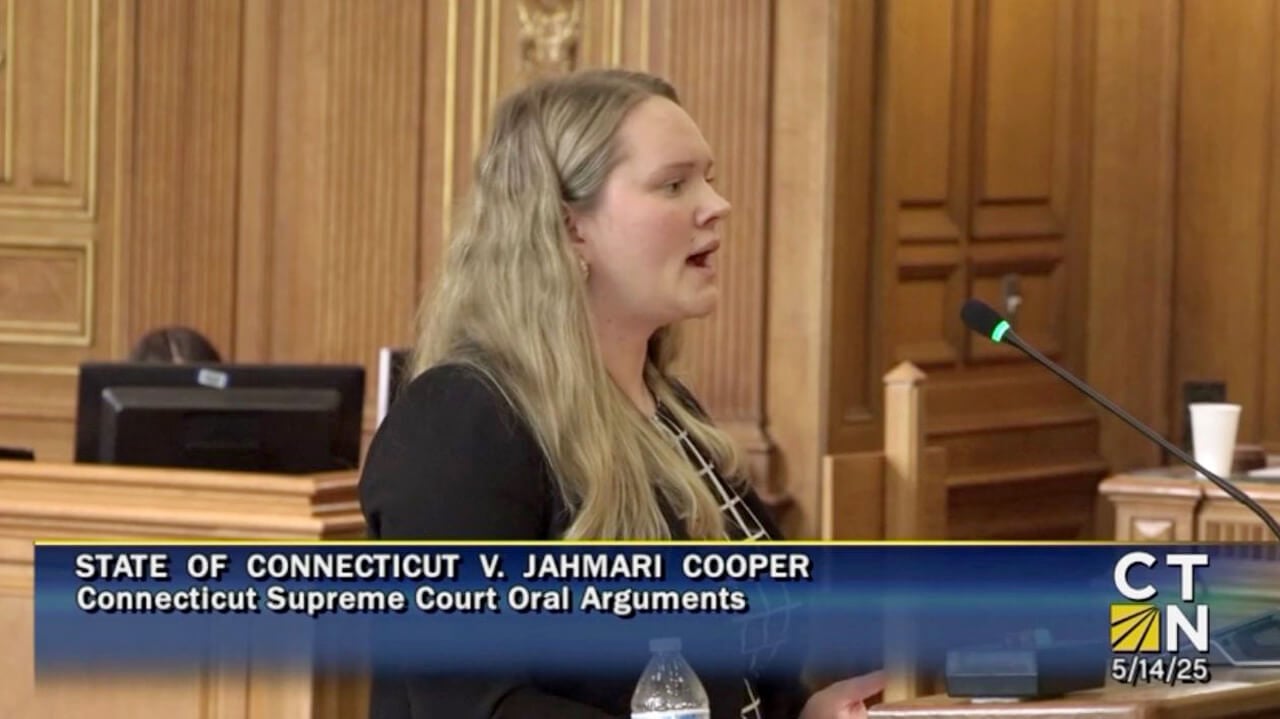
Heather Mansfield, JD ’25, presenting oral arguments in the case of State v. Jahmari Cooper.
Juris Doctor (JD)
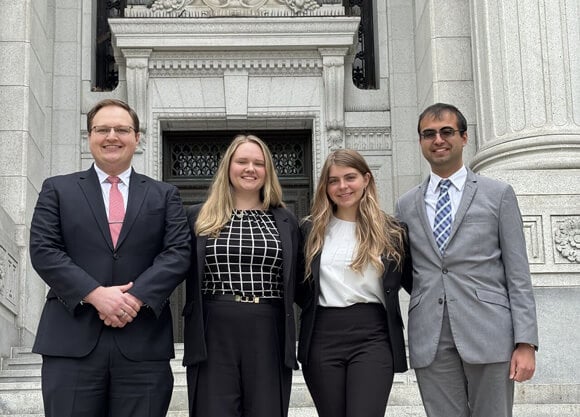
Juris Doctor (JD)
As part of the Prosecution Appellate Clinic within the Quinnipiac School of Law, students work in teams of two and are assigned a real criminal appeal. They draft a brief on behalf of the State and argue the appeal before the Connecticut Supreme Court or Appellate Court.
In LAWS 302: Appellate Clinic I - Prosecutorial and LAWS 303: Appellate Clinic II - Prosecutorial, students represent the State of Connecticut in criminal conviction appeals under the supervision of a visiting professor from the Chief State's Attorney's Office Appellate Bureau. Students write one or two briefs and argue an appeal before the Connecticut Appellate Court or Supreme Court.
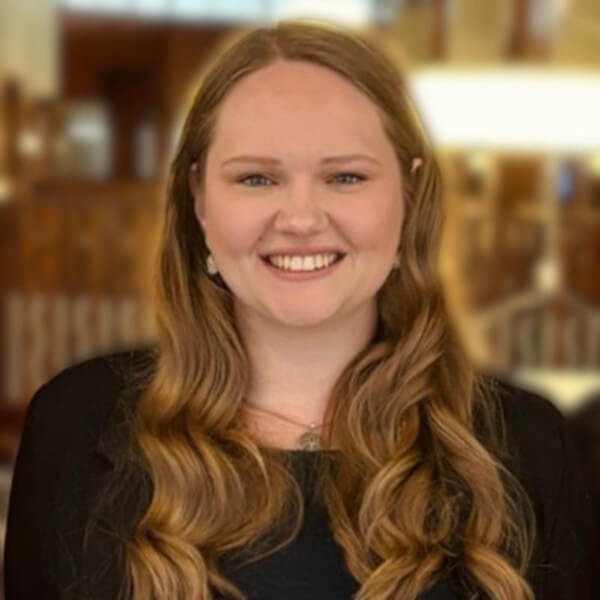
JD Full-Time Program
Quinnipiac Law
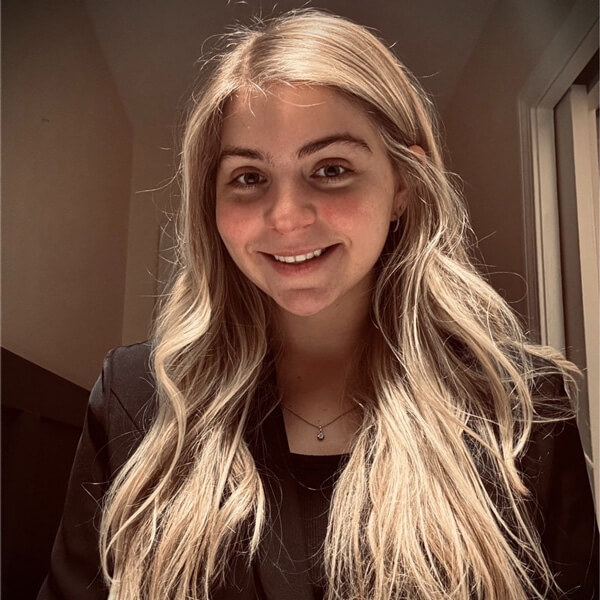
JD Full-Time Program
Quinnipiac Law
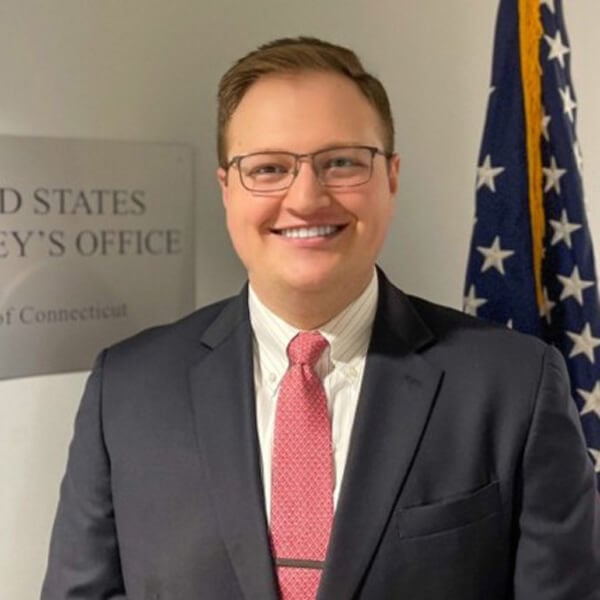
JD Full-Time Program
Quinnipiac Law
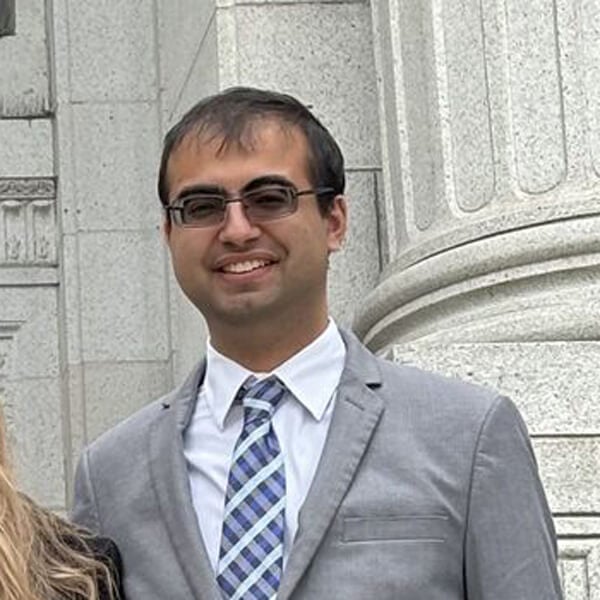
JD Full-Time Program
Quinnipiac Law
After a defendant is convicted of a crime at a criminal trial, the defendant will usually appeal claiming that various errors committed at trial requires their conviction to be overturned and that they be given a new trial. To that end, the defendant's attorney files a 35-page brief to the Connecticut Supreme Court outlining any alleged errors. The prosecutor then file a responsive brief on behalf of the State refuting any claimed errors.
On May 14, 2025, Heather Mansfield and Isabella Carr-Perri presented oral arguments in the case of State v. Jahmari Cooper, while Michael Coudert and Rajan Doering presented oral arguments in the case of State v. John Bolton.
In State v. Jahmari Cooper, the issue was whether the Supreme Court should adopt a rule that the police must allow a minor to meet privately with a parent or guardian before interrogating that minor (under 18). A second issue in the case was whether the trial prosecutor engaged in misconduct by her remarks during closing argument.
In State v. John Bolton, the Court considered the proper procedure to be employed when a jury announces a guilty verdict in open court but, during a subsequent poll of each individual juror, one juror indicates that she was unsure of her verdict. The trial court sent the jury back to continue deliberations and the defendant claimed the court should have declared a mistrial.
“It was a surreal experience (to say the least), and by far the most formidable challenge I’ve faced yet. I never imagined I’d have an opportunity like this so early in my career. I’m deeply grateful.” - Heather Mansfield, JD ’25
“I'm truly fortunate to have had this experience which many lawyers may not have in their entire careers.” - Michael Coudert, JD ’25
“This experience was surreal. Many seasoned attorneys may never get the chance to argue at this level. To do so this early in my career — just after graduating law school — is something I’ll never forget. I’m excited to carry this experience with me always, and have certainly learned a lot that I will be able to apply in the future!” - Isabella Carr-Perri, JD ’25
“After spending months writing the brief and preparing for oral argument, it was very rewarding to see this come together. I know many lawyers go their entire career without ever getting to do this, and I am grateful to have had the opportunity to do so just days after graduating. I have always been interested in appellate work, public service, and criminal law, and participating in the Prosecution Appellate Clinic was by far the best thing I did while in law school. I am sure I will always remember this case as my first appearance before the Supreme Court, and I look forward to applying the skills I learned to my future work.” - Rajan Doering, JD ’25
“The students did a wonderful job both on the briefs and during oral argument and they received praise from experienced lawyers for how poised and prepared they were. Giving the students this kind of opportunity is why the Quinnipiac Law School's experiential clinic program was awarded an A+ grade for practical training by National Jurist magazine.” - Ronald Weller, Adjunct and Visiting Clinical Professor, Quinnipiac University School of Law
This serves as an overview of the experience and does not include the complete work. To further discuss the experience, please email Ronald Weller.
All of our programs and concentrations at Quinnipiac Law are designed to give you a well-rounded legal education with an emphasis on the human side of lawyering. Through coursework, student organizations and clinics and externships, our students learn to think like a lawyer, solve problems and communicate persuasively.